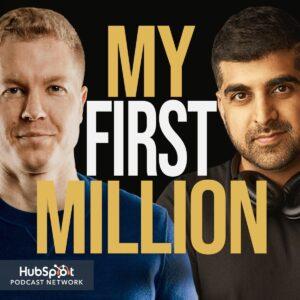
In this episode of the “My First Million” podcast, the hosts discuss various topics ranging from long-lasting companies like Louis Vuitton and New York Times, the importance of having a clear vision for one’s life and career, the success of companies like SpaceX and PayPal, the rise of deepfake technology, the need for improved pandemic monitoring and detection software, and the benefits and challenges of remote work. They also share insights from former professional athletes who have transitioned into business and tech. This episode provides valuable takeaways for listeners looking to build successful and long-lasting ventures.
Companies like Louis Vuitton and New York Times have stood the test of time by staying true to their core values and maintaining brand consistency. Building a brand with a soul and a long-term view is essential for creating a company that can last for decades or even centuries. While outsourcing can be beneficial for certain roles, it is crucial to build a strong company culture to ensure longevity.
Having a compelling vision for one’s life and career is an attractive trait. Starting with a humble ambition and progressively expanding as things start to work can lead to long-term success. Sometimes, focusing on building something really useful for a specific group can be enough, and success in one venture can earn the right to pursue the next step of success.
Elon Musk’s SpaceX has a clear mission to make the human species multi-planetary, starting with a small vision of sending a plant into space. PayPal’s success can be attributed to its focus on a small use case of sending money via email. To build a company that lasts, it is important to have a clear defined purpose and foster a team of employees who share the same long-term commitment.
Deepfake technology presents both a crisis and an opportunity for celebrities. They may no longer need to physically appear in commercials or events, as their AI clones can do the work. While this may save brands money, it raises concerns about consent and control over the use of celebrities’ likeness. The creation of a celebrity deep fake licensing company could help manage the use of celebrity AI clones.
The COVID-19 pandemic has highlighted the importance of effective monitoring and detection software. Building a pandemic monitoring and detection program could be a valuable and defensive 100-year company. The success of a pandemic model created as a side project by Kevin Sistram indicates a need for improved pandemic modeling and detection software. Products with a network effect, such as pandemic detection software, become more compelling as more governments adopt them.
Former professional athletes who transition into business and tech bring finesse and humility to their new ventures. Their competitive spirit and dedication to personal growth contribute to their success. Examples include former NBA player Zaza Pachulia playing pickup basketball with founders and investors, and former NFL player Russell Okung documenting his 21-day water-only fast. These athletes demonstrate the importance of discipline and continuous improvement in different domains of life.
This episode of “My First Million” covers a wide range of topics, including building long-lasting companies, the power of vision, success stories from SpaceX and PayPal, the rise of deepfake technology, the need for improved pandemic monitoring and detection software, and insights from former professional athletes. Listeners can gain valuable insights and inspiration for building successful and enduring ventures.